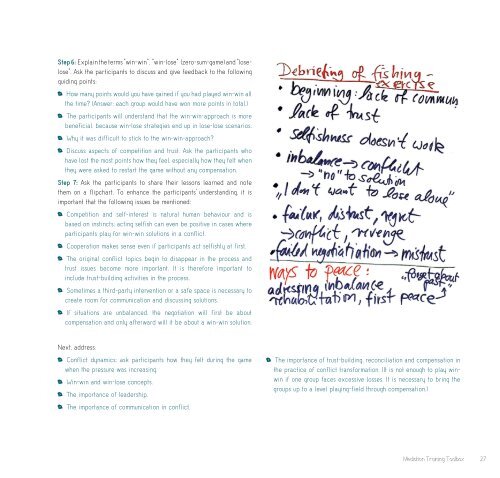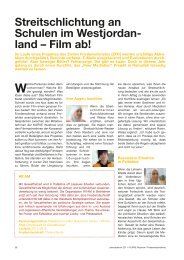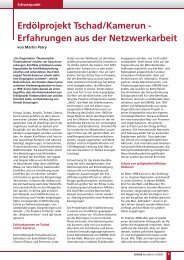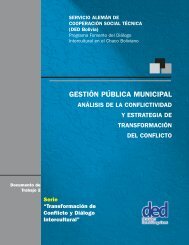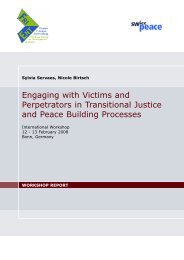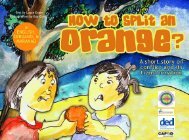Merging Ethiopian Wise-Counsel Mediation and Facilitative ...
Merging Ethiopian Wise-Counsel Mediation and Facilitative ...
Merging Ethiopian Wise-Counsel Mediation and Facilitative ...
- No tags were found...
Create successful ePaper yourself
Turn your PDF publications into a flip-book with our unique Google optimized e-Paper software.
Step 6: Explain the terms "win-win",‘"win-lose"’(zero-sum-game) <strong>and</strong> "loselose".Ask the participants to discuss <strong>and</strong> give feedback to the followingguiding points:> > How many points would you have gained if you had played win-win allthe time? (Answer: each group would have won more points in total.)> > The participants will underst<strong>and</strong> that the win-win-approach is morebeneficial, because win-lose strategies end up in lose-lose scenarios.> > Why it was difficult to stick to the win-win-approach?> > Discuss aspects of competition <strong>and</strong> trust. Ask the participants whohave lost the most points how they feel, especially how they felt whenthey were asked to restart the game without any compensation.Step 7: Ask the participants to share their lessons learned <strong>and</strong> notethem on a flipchart. To enhance the participants'’underst<strong>and</strong>ing, it isimportant that the following issues be mentioned:> > Competition <strong>and</strong> self-interest is natural human behaviour <strong>and</strong> isbased on instincts; acting selfish can even be positive in cases whereparticipants play for win-win solutions in a conflict.> > Cooperation makes sense even if participants act selfishly at first.> > The original conflict topics begin to disappear in the process <strong>and</strong>trust issues become more important. It is therefore important toinclude trust-building activities in the process.> > Sometimes a third-party intervention or a safe space is necessary tocreate room for communication <strong>and</strong> discussing solutions.> > If situations are unbalanced, the negotiation will first be aboutcompensation <strong>and</strong> only afterward will it be about a win-win solution.Next, address:> > Conflict dynamics: ask participants how they felt during the gamewhen the pressure was increasing.> > Win-win <strong>and</strong> win-lose concepts.> > The importance of leadership.> > The importance of communication in conflict.> > The importance of trust-building, reconciliation <strong>and</strong> compensation inthe practice of conflict transformation. (It is not enough to play winwinif one group faces excessive losses. It is necessary to bring thegroups up to a level playing-field through compensation.)<strong>Mediation</strong> Training Toolbox27


